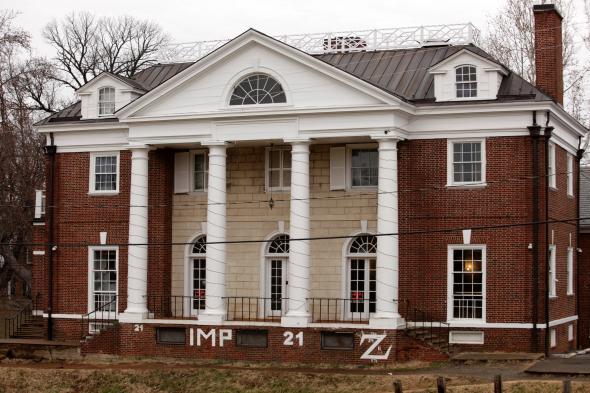UVA Fraternity Vows to Sue Rolling Stone—but It Won’t Be an Easy Case

Photo by Jay Paul/Getty Images
The fraternity that was thrown into the spotlight by the now-discredited Rolling Stone article about a supposed gang rape at the University of Virginia vowed on Monday to “pursue all available legal action against the magazine.” The UVA chapter of the Phi Kappa Psi fraternity issued the statement mere hours after the release of a damning Columbia University journalism school report that described the original story as a “journalistic failure.”
“The report by Columbia University’s School of Journalism demonstrates the reckless nature in which Rolling Stone researched and failed to verify facts in its article that erroneously accused Phi Kappa Psi of crimes its members did not commit,” said Stephen Scipione, president of the UVA chapter of Phi Kappa Psi. “This type of reporting serves as a sad example of a serious decline of journalistic standards.”
The fraternity has yet to make a decision on the exact timing of the lawsuit, a spokesman told CNN, which was the first to report on the statement.
“Clearly our fraternity and its members have been defamed, but more importantly we fear this entire episode may prompt some victims to remain in the shadows, fearful to confront their attackers,” said Scipione. “If Rolling Stone wants to play a real role in addressing this problem, it’s time to get serious.”
The fraternity criticizes the magazine for its decision to not hold anyone accountable for the story’s failures and points out that the author of the piece has not apologized to the fraternity. “This is a clear and sad indication that the magazine is not serious about its journalistic obligations leaving the door open for equally irresponsible reporting in the future,” notes the statement.
The Atlantic’s James Fallows speculates on Twitter that the magazine’s insistence of no direct consequences from the report could be a way to protect itself from just these types of lawsuits.
Only plausible explanat for RollStone's "no heads will roll / no procedures will change" stance is defensive crouch before pending lawsuits
-- James Fallows (@JamesFallows) abril 6, 2015Even if the Rolling Stone story is a failure from top to bottom, who can actually sue as a result is not as clear as it may appear at first glance. Writing in the Washington Post, Eugene Volokh notes, “It’s possible that the fraternity and perhaps its members might be able to sue, but the matter is complicated.” Although the size of Phi Kappa Psi might make it too large to claim that all members of the UVA chapter of the fraternity were defamed by the story, there may be a way to get around that. The story did suggest that the gang rape was part of an initiation ritual for fraternity members. That “could be seen as implying that most fraternity members had likewise participated in other gang rapes, or might identify a particular subgroup of fraternity members as likely participants,” notes Volokh.
And while Phi Kappa Psi could certainly try to argue that the defamation applies to individual members, the magazine will push back. “Rolling Stone’s lawyers would likely argue that the group is so large and fluid (after all, the membership changes somewhat every year), that even though the fraternity's reputation is tarnished, the members have suffered no individualized injury,” points out CNN’s Danny Cevallos.
The fraternity as an organization could also sue, although it would have to prove it was hurt financially by the story. Volokh explains:
The allegations of such group misconduct at the fraternity house certainly do harm the fraternity as an organization “in public estimation.” Therefore, if the chapter has independent legal existence, whether as a corporation or as an unincorporated association, and if it can show loss of income from potential members or from donors — or other loss stemming from, for instance, punishment by the university — then it could potentially prevail on this. And the central fraternity could also sue for similar losses, on the theory that its reputation has been tarnished both at UVA and elsewhere.
On the other hand, the organizations can’t recover damages for the emotional distress flowing from the injury to their reputations (since they lack emotions). Individuals can recover such emotional distress damage, even above and beyond actual lost income.
The one thing everyone does seem to agree on though is that UVA itself can’t sue. Why? Quite simple. UVA is a public university, so it’s considered a government entity, and the government can’t sue for defamation.
